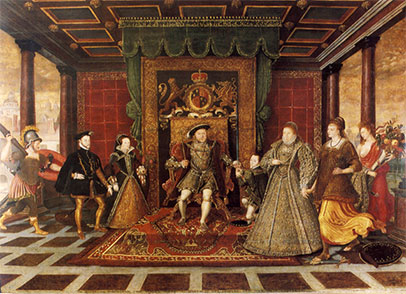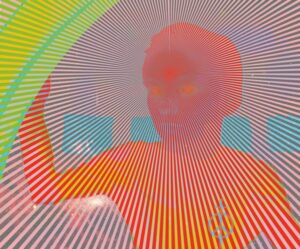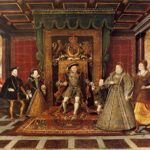Some mysteries many will never understand to this day, and among many others is the male gaze. Shaping our perception, values, and societal beauty standards for generations. As thought-provoking as this may sound to women, this has been in effect from the beginning of time – generations of women before you. The discrepancy on the motive of a woman’s extra effort to look good has been a constant tug of war between looking good for themselves and looking good to impress men.
Thinking aside, looking back in time from the days of old and understanding the innate needs of a woman to stand out among other women, to impress a man, to be wanted, to be loved, and to be accepted. I can’t help but see a natural competitiveness in them. Having the urge to follow societal trends – trends that were born out of the approval of a generally desired man or men at one point in time and thereafter became a trend. But even at this state, women are in constant denial of this truth. There is always a disagreement when this issue is brought forth to a woman. These thoughts in men are usually from self-realization, seeing life for what it truly is. However, the truth most times can be bitter and, in this case, hurtful to a person’s self-esteem. Most men would rather not over-stress the obvious.
Think of it this way:
If all men were born blind, insecurities among women wouldn’t be. Makeup would most likely not exist, butts and breast jobs, and all forms of beauty-inspired body modification wouldn’t exist. I bet they’ll be of no use. The eyes of men have seen and caused a lot to women, but it gets away with it all the time. This is true because even the affected woman refuses to acknowledge the significance of a man’s eye.
Not many women will accept this truth, as so many others did in the past when both men and women spoke of it. Yes, women have spoken about this long before me, seeing the reality for what it is. But our new age has women no longer in a quest for self-confidence and equality but rather are in a cocoon of beliefs that constitute unrealistic expectations for their blinded effort to please men and a lack of nuance, making them neglect the complexities of individual differences between women. All these are under the effect of modern-day feminism. Causing division and resentment among women and creating unrealistic beauty standards.
Laura Mulvey’s theory of the male gaze, as described in her 1975 essay “Visual Pleasure and Narrative Cinema,” explains her opinion of the idea that women are often viewed and represented through the perspective of men, which can lead to objectification and oppression. She believes that the male gaze is a product of patriarchal society and reinforces the existing power dynamics between men and women. Laura relates the male gaze to the way in which the camera looks at women in a film, presenting them as objects of pleasure for the viewer. She says it is not limited to cinema but is a widespread cultural phenomenon that perpetuates the objectification of women and adds that it privileges men and grants them agency while reducing women to mere objects of desire. She explains how the male gaze is a subject of critique and discussion in feminist discourse and has led to the creation of more female-centric narratives and the objectification of men as a way to subvert the traditional male gaze.
The gaze as a tool of oppression by Jean-Paul Sartre (1943) – This piece by Jean Paul I understand has a unique way it lays its message. It streamlines the knowledge that the gaze can be a means of exerting power over others, reducing them to objects for one’s own pleasure.
John Berger’s “Ways of Seeing” (1972) – Which explores how our perceptions shape our understanding of reality and how the male gaze has influenced art and society.
Margaret Atwood’s “The Handmaid’s Tale” (1985) – Which depicts a patriarchal society where women’s bodies are controlled and commodified, highlighting the harm caused by the male gaze.
The idea of the male gaze sure has its plethora of effects on women and society in general. Its influence on our perception and societal standards does not solely emanate from men but also from the gaze of women. A lady’s gaze has a strong hold on men (stronger one I would add) and a huge influence on our societal standards. Compared to the gaze of a man, these effects from the female gaze are one that is acknowledged by most men.
Men too are living under objectification from women. I ponder on the reasons why men pay no much attention to it or see it as a problem. I am once again reminded of earlier times and the natural expectations of a Man – to be strong, be able to provide, and to protect. And men not realizing their innate desire to also impress women and not be seen as weak-minded for getting triggered over being objectified by a woman.
I still arrive at the conclusion that men take less offense from being objectified because they are struggling with their innate need to provide. Men find themselves more driven by things and having concern for themselves is the least worthy of their attention.
The perception of the effect of the gaze of a man on a woman yields a different result from that of a woman on a man. Simply because of their innate desires to please each other, the constant struggle to be at the top of their game creates a division among themselves. This division is between those who can’t take it anymore, those who take offense to being objectified, and those who find pleasure in it. Not to mention those who beg for it. This, in turn, creates a level of disrespect and the urge to sense hypocrisy in others, unable to identify who shares their kind of ideas.








